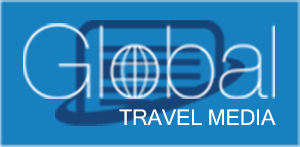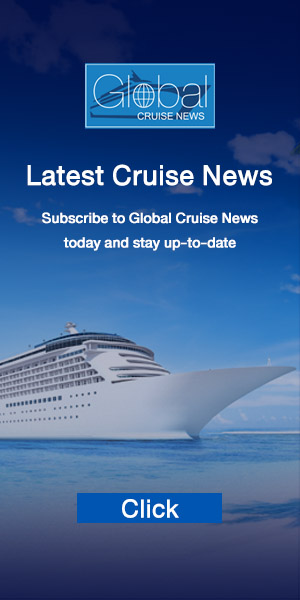International travel entails a myriad of potential risks, ranging from inconveniences like lost luggage and flight delays to more severe threats such as social unrest, health hazards, and terrorism. Nevertheless, discerning travellers can navigate these challenges by conducting thorough research and heeding government warnings, insurance policies, and risk assessments. In light of this, Europ Assistance, a leading global assistance company and the parent company of award-winning Australian travel insurer InsureandGo commissioned a groundbreaking survey to shed light on Australians’ current concerns and considerations when planning overseas vacations. The survey, known as the Europ Assistance 2023 Holiday Barometer, involved 15,000 participants from 15 countries and aimed to uncover prevailing travel trends.
For the first time, Australia was included in the research following Europ Assistance’s acquisition of InsureandGo and Tick Travel Insurance. The comprehensive report is available and provides valuable insights into Australians’ perspectives on international travel. Respondents were asked to rate various factors according to their importance in choosing an international holiday destination, including essential, important but not essential, or secondary options.
A staggering 70% of Australians indicated that the destination’s economy was relevant to their decision-making process. Australians understand the potential risks of visiting countries with struggling economies, such as poor water quality, limited food choices, and a lack of modern conveniences. Of the respondents, 71% emphasized the significance of the economic situation in the destination country, with 21% considering it an essential factor in their decision.
Regarding personal safety, approximately 75% of Australians prioritized avoiding locations with high crime rates. Understandably, the fear of being a victim of an attack or theft can lead to long-term trauma, travel disruptions, and substantial medical or recovery expenses for uninsured travellers. Thus, it is no surprise that 74% of respondents regarded the risk of personal attacks as an essential or important consideration when choosing a holiday destination.
Language also emerged as a critical consideration, with two-thirds of Australians stating they would avoid destinations where they couldn’t communicate effectively. The survey revealed that only 21% of Australians speak a language other than English at home, emphasizing the importance of linguistic compatibility for 65% of respondents when selecting an international destination.
Furthermore, 89% of Tasmanian respondents regarded the risk of COVID-19 infection as an essential or important factor influencing their choice of destination. This concern was echoed by 78% of respondents from the Australian Capital Territory, 66% from New South Wales and Victoria, 64% from the Northern Territory, and 59% from South Australia. Despite the World Health Organization’s declaration that COVID-19 is no longer a public health emergency of international concern, Australian travellers remain cautious about the potential risks of the virus.
Curiously, the survey uncovered a disparity in attitudes towards ecological footprints among different age groups. While climate change has become a prominent issue with potential long-term impacts, only 6% of respondents over the age of 65 considered the ecological footprint of their trip as an essential factor when booking an international holiday. In contrast, 18% of those aged 55-64 and 25% of those aged 35-44 regarded it as essential. This suggests that older age groups are less concerned about the environmental impact of their travels.
Terrorism also played a role in Australians’ destination choices, albeit to a lesser extent. The survey found that only a minority of respondents considered the risk of terrorism as an essential factor, with percentages ranging from 21% in Tasmania to 41% in the Australian Capital Territory. Similarly, the ongoing war in Ukraine was deemed essential by only 17% of respondents. The impact of the conflict on Europe’s tourism industry was highlighted by a report from the Economist Intelligence Unit, which outlined four significant effects, including a decline in Russian and Ukrainian tourists, airline and airspace restrictions, increased food and fuel costs, and reduced traveller confidence and disposable incomes.
InsureandGo spokesperson and Chief Commercial Officer Jonathan Etkind acknowledged the survey results and emphasized that Australian travellers prioritize concerns that directly impact their personal experiences. While issues like the war in Ukraine and the ecological footprint of travel ranked lower in their considerations, Etkind anticipated that ecological footprints would gain increasing importance in the future, alongside more outstanding education and awareness of low-carbon travel options. Furthermore, Etkind stressed the significance of travel insurance in safeguarding travellers’ health and finances, offering protection against various risks such as illness, COVID-19 infections, theft, and natural disasters. He advised travellers to conduct thorough research and remain aware of specific risks when embarking on international trips.

Survey question – Indicate whether the following factors played or will play an essential, important or secondary role in your choice of destination.
In conclusion, the Europ Assistance 2023 Holiday Barometer has shed light on the factors that concern Australians when booking international holidays. From economic considerations and personal safety to language compatibility, COVID-19 risks, and ecological footprints, Australians demonstrate diverse priorities when selecting their desired destinations. As the travel industry evolves, travellers must stay informed and prioritize their well-being, ensuring their vacations are memorable and worry-free.
Written by: Anne Keam
====================================

















